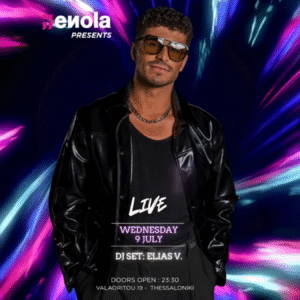The rich history of Polari—a secretive slang once whispered in queer circles across Britain—remains a captivating symbol of LGBTQ+ resilience and creativity. In this post, we’ll explore seven Polari words still thriving in queer vocabularies today, along with six delightful terms that deserve a glamorous comeback. Polari, the hidden language of survival and subversion, is far more than kitsch nostalgia—it’s a living testament to how queer culture communicates, adapts, and endures.
What is Polari and Why Did Queer Communities Use It?
Polari originated as a form of cant slang used in British subcultures, including fairgrounds, theater, and merchant navy communities, but it was queer men—particularly in the 1950s and ‘60s—who transformed it into a secret code for survival. In an era when homosexuality was criminalized, Polari offered a way to communicate identity, flirt, and find community without outing oneself to potentially dangerous ears. It was theatrical, witty, camp—and lifesaving.
Which 7 Polari Words Are Still Used in Queer Culture Today?
Some Polari terms have filtered into mainstream LGBTQ+ language or even everyday slang. These words persist, not just for their sparkle, but because they’ve become cornerstones of queer expression.
-
Drag – Meaning clothing or costume, especially cross-dressing. Now widely used thanks to drag culture’s global explosion.
-
Camp – Denoting exaggerated, theatrical, or flamboyant behavior. Aesthetic, style, and attitude all wrapped in fabulousness.
-
Trade – Refers to a casual sexual partner, especially a straight-appearing man. Still cheekily used in queer scenes today.
-
Bona – Meaning good or excellent. “That look is bona, babes!”
-
Naomi – Polari for name. A nod to how coded and creative Polari wordplay could be.
-
Vada – To see or look. “Vada the new queen on the scene!”
-
Slap – Makeup. Often used in drag culture, as in “putting on the slap.”
Why Did Polari Fall Out of Common Use?
The decriminalization of homosexuality in England and Wales in 1967 marked a turning point. As queer people gradually became more visible and legally protected, the need for such secretive speech diminished. Meanwhile, activists pushed for direct, unapologetic language rather than coded words—shifting away from Polari’s playful euphemisms. Still, nostalgia and camp have helped Polari phrases survive in pockets of queer culture.
Which 6 Polari Words Deserve a Comeback?
Reviving Polari is about more than linguistic whimsy—it’s reclaiming queer history. These six words are vibrant, expressive, and just begging to be spoken again:
-
Luppers – Hands. “Keep your luppers off my look, darling!”
-
Riah – Hair. Comes from reversing “hair.” “Loving your riah today.”
-
Zhoosh – To style or spruce up. While “zhuzh” is popular, the Polari origin often goes uncredited.
-
Naff – Originally Polari for dull or uncool. Now used broadly, but its queer origin should be remembered.
-
Dolly – Lovely or cute. “You’re looking absolutely dolly tonight!”
-
Omi-Palone – A man-woman or effeminate man, depending on context. With sensitivity, this word could be reimagined as a joyful gender expression rather than mockery.
How Can We Use Polari Responsibly in Modern LGBTQ+ Spaces?
Language, especially when rooted in oppression, must be honored with care. Polari should be used thoughtfully—not just as vintage kitsch, but as part of a living history. Learning and sharing Polari can spark conversations about queer resistance, creative communication, and intergenerational connection. It’s a way of saying: we were here, we spoke in code, and we still have stories to tell.
What Role Does Polari Play in Queer Identity Today?
In a time when LGBTQ+ culture is increasingly visible, some are drawn to Polari for its sense of secrecy, sisterhood, and sass. It invites a playful form of identity-building—expressing queerness not just through what we are, but how we speak. Whether you’re throwing shade or throwing on the slap, Polari reminds us that language is a form of defiance, glamour, and connection.












